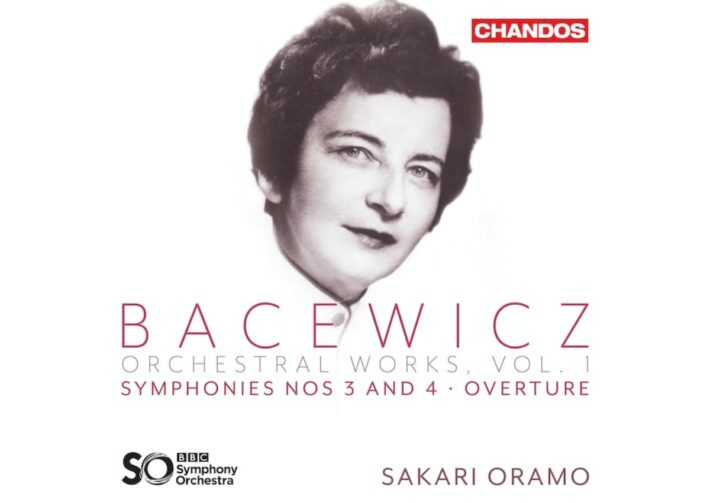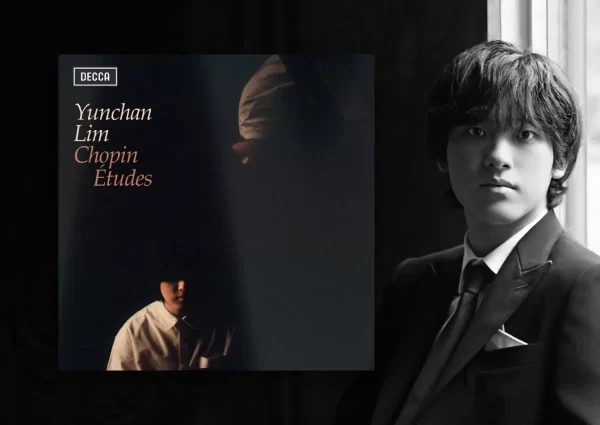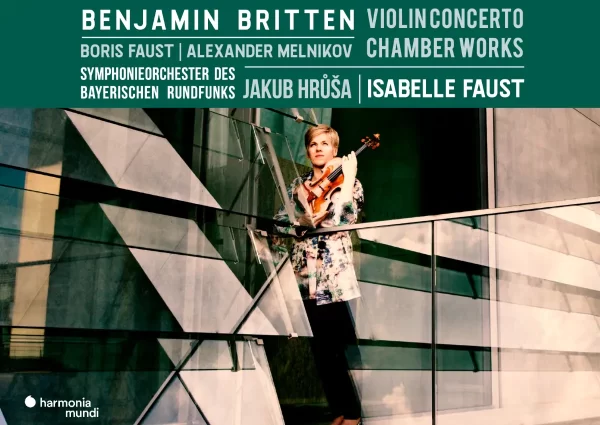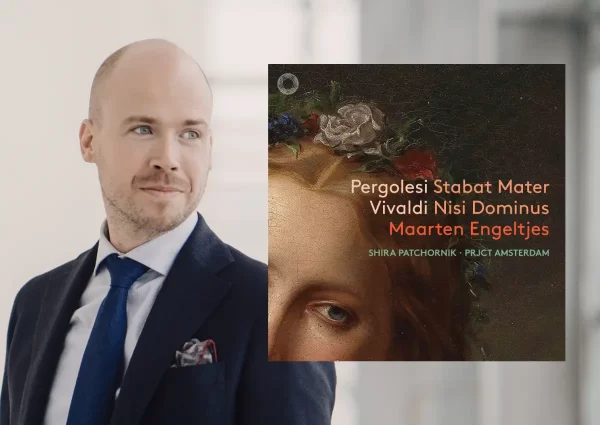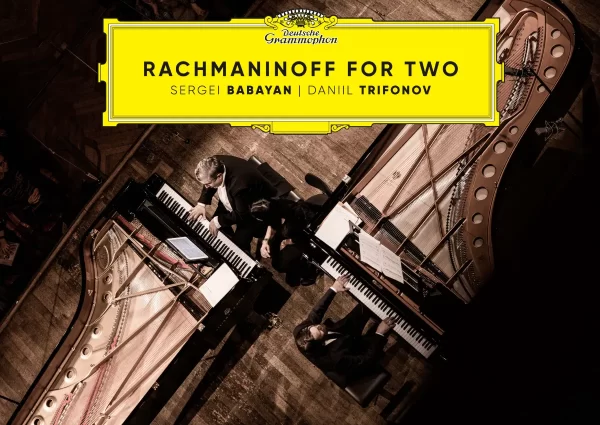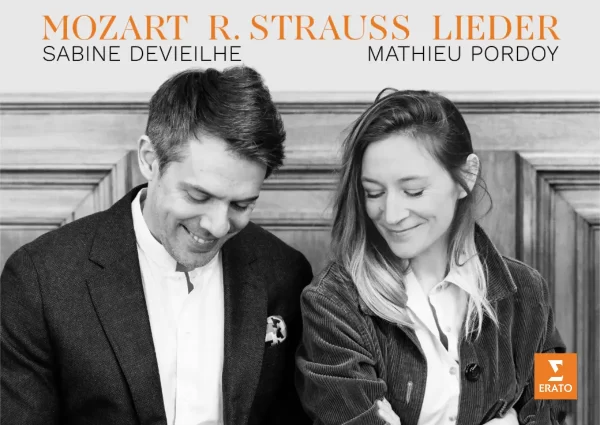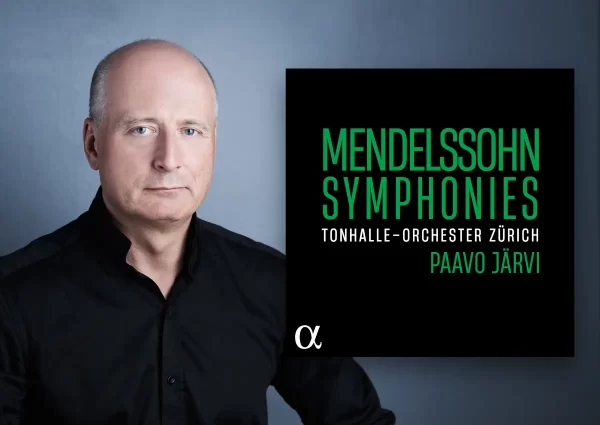Chandos’ first Bacewicz recording, released in 2009, featured wonderful performances of three violin concertos, played by Joanna Kurkowicz and the Polish Radio Symphony Orchestra under Lukasz Borowicz. That was my introduction to Bacewicz’s music, and it certainly left me wanting to hear more. Chandos (and others, thankfully) duly obliged: the Chandos catalogue now offers the complete violin concertos and string quartets, as well as two recordings of her chamber music. This latest album is the first in a series focusing on her orchestral works.
Born into a musical family, Bacewicz grew up studying the violin, eventually entering the Warsaw Conservatory where she also studied composition. A scholarship enabled further studies in Paris: violin with André Touret and Carl Flesch, and composition with Nadia Boulanger. At the invitation of Grzegorz Fitelberg, the conductor of the Polish Radio Symphony Orchestra, Bacewicz returned home to serve as the ensemble’s concertmaster. Scholar Małgorzata Gąsiorowska suggests Bacewicz accepted the position more as composer than player, because playing in the orchestra would provide first-hand knowledge of how it worked, and how best to write for it. And there is no doubting her mastery of orchestration, especially as heard in these explosive readings, captured in Chandos’ best Super-Audio sound.
Bacewicz, of course, composed during the Soviet regime, meaning she, like Shostakovich, Weinberg, Penderecki and Lutosławski (to name just a few) worked within the same strictures for populist music serving an ideological purpose. The two symphonies (No. 3 written in 1952 and No. 4 written in 1953) and Overture (written in 1943 during the Nazi occupation of Warsaw) are abstract, absolute works, without any program. Yet the third symphony’s anxiety-ridden introduction (marked Drammatico) surely reflects the mood of its times, as does the relentless drive and restlessness of the Molto allegro energico that follows, in clear sonata form. The stalking bass line that begins the following Andante brings in an incessant coloristic development where melodic figures struggle to have a fully lyrical moment, only to be interrupted by a thwacking bass drum. The basis of both scherzos is mercurial shifts of mood and color, ceaselessly restless, though sometimes playful. And how acutely the BBC players inhabit those many moods – one senses the orchestra’s conviction and enthusiasm for this music in playing that is energetic, fulsome, and highly refined.
Related Posts
- Review: Grażyna Bacewicz – Piano Music – Joanna Sochacka
- Review: “Diffusion” – The Verona Quartet Play Janáček, Szymanowski and Ravel
- Review: Szymanowski – Piano Works – Krystian Zimerman, Piano
- Review: Compositrices – Bru Zane
More than one commentator has suggested Bacewicz’s writing has similar qualities to the music of Bartók and Shostakovich. But I heard unexpectedly strong parallels with the music of English composer William Walton. Sample her two scherzos and then Walton’s Scapino Overture, or the “Giga burlesca” from his Partita: one hears similar coloristic effects, melodic figures tossed back and forth between sections, a rapier wit, and a love of bright, brassy dissonance. The finales of both symphonies are well built counterbalances to their opening movements – indeed, repeated listening reveals how artfully the music is constructed. Some listeners might find the restless energy frustrating because it rarely, if ever, leads to a moment of emotional catharsis. But surely frustration and restlessness are what she felt, living in that time and place where her music was subjected to a series of useless rules and conditions meant to force her, and everyone else, into writing a certain way? All credit to Oramo, whose dramatic conception of both symphonies teases out the darker undercurrents of both works. The Overture, which closes the program on an optimistic note, shows the influence of Bartok more overtly.
Chandos’ ancillary materials are excellent, and I am particularly pleased they allowed for Katarzyna Naliwajek’s thorough and erudite liner notes, which go to great lengths to put Bacewicz’s into a political/historical perspective.
There is a competing CPO recording of these two symphonies played by the WDR Sinfonie-Orchester and Łukasz Borowicz on CPO. If forced to choose I would lean towards this new one because I prefer its Super-Audio sound and find Oramo’s readings fierier. The playing also has a compelling, moodier frisson. But the Borowicz recording is also very distinguished, perhaps offering a different, less angst-ridden interpretive viewpoint which is just as compelling. This music needs and deserves multiple recordings. I look forward to further releases in this series and hope more labels will follow the lead of Chandos and CPO in recording this distinguished composer – strongly recommended.

Grazyna Bacewicz – Orchestral Works Vol. 1
BBC Symphony Orchestra
Sakari Oramo – Conductor
Chandos, CHSA5316
Related Albums
Borowicz & WDR Sinfonie (Symphonies Nos. 3 & 4) | Collon & Finnish Radio Symphony (Piano Concertos) | Silesian Quartet (Complete String Quartets) | Peter Jablonski (Piano Works)
Read more classical music reviews or visit The Classic Review Amazon store
Follow Us and Comment:
Get our periodic classical music newsletter with our recent reviews, news and beginners guides.
We respect your privacy.

